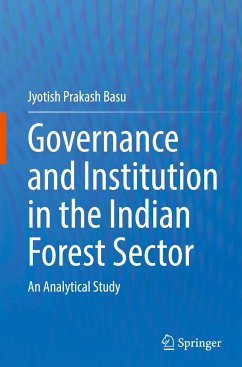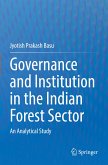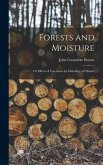This book addresses quantitative assessment of forest governance and how local-level institutions work in governing efficient ways of forest resource management so that sustainable development of forest is ensured. The research is done at the micro-level as well as macro-level in India. The research presented here focuses on forest governance and institutions in the two forest divisions of West Bengal say South Bengal and North Bengal. The research covers 36 villages, 844 households, 10 Gram panchayat, 12 Beat offices, and 36 Forest protection Committees in West Bengal and also studies different local-level institutions like local communities/households; Joint Forest Management Committees (JFMC)/Forest Protection Committees (FPCs); Community Forest Management groups; Van Panchayats; Village Councils (schedule VI area) and Biodiversity Management Committees; Eco-development committees, NGOs and Self-Help Groups, and Panchayati Raj Institutions (PRIs). Chapters also address variousissues like monitoring, enforcement, rule of law, transparency, accountability, participation, control of corruption, government effectiveness, regulatory quality, and sustainable livelihood in connection with the study of forest governance. This research is associated with different sectors like agricultural sector, forestry sector, informal sectors and rural development, etc., and involved multi-stakeholders. Particular attention is given on the policy-oriented research which is the cornerstone of SDG of 16. Developmental practitioners, government implementation agencies, researchers in environmental science and social science, and policymakers find this book appealing.
Bitte wählen Sie Ihr Anliegen aus.
Rechnungen
Retourenschein anfordern
Bestellstatus
Storno








